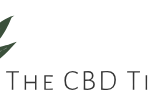Arrange Your Dermal Filler Session with Dr. Laura Geige
Written Communication
Academic Papers
Filler words and phrases can detract from the clarity and impact of written communication, particularly in academic papers where precision and conciseness are paramount.
Here are some areas to avoid filler:
* **Introductory Phrases:** Avoid overusing phrases like “in this paper,” “it is important to note,” or “this study aims to.” These can be replaced with more direct language that gets straight to the point.
* **Redundancies:** Be mindful of using words or phrases that repeat information already stated. For example, saying “very unique” or “absolutely essential” can often be simplified to just “unique” or “essential.”
* **Vague Quantifiers:** Instead of using vague terms like “a lot,” “some,” or “many,” strive for more specific and precise quantifiers whenever possible. For instance, instead of saying “There were many challenges,” say “The project encountered six major challenges.”
* **Unnecessary Adverbs:** Adverbs can sometimes weaken verbs. Consider if the adverb is truly necessary to convey your meaning. For example, “He walked quickly” can often be simplified to “He walked swiftly.”
* **Hedging Language:** While some hedging (e.g., “It appears that,” “It seems likely”) can be appropriate in academic writing, overuse can undermine the confidence and clarity of your arguments. Be assertive where justified.
Schedule a Dermal Filler Consultation with Dr. Laura Geige Now
By eliminating filler words and phrases, you can create academic papers that are more concise, impactful, and focused on conveying your ideas effectively.
Remember, strong writing is about choosing your words carefully and using them to their fullest potential.
Formal Correspondence
Filler words and phrases can undermine the clarity and impact of formal correspondence. They clutter sentences, distract from key messages, and erode professionalism.
Areas to Avoid Filler Words in Formal Correspondence:
1. *Introductions:* Start directly with the purpose of your communication.
2. *Paragraph Transitions:* Use concise linking words like “therefore,” “however,” or “furthermore” instead of excessive filler.
3. *Sentence Beginnings:* Avoid starting sentences with phrases like “it is,” “there are,” or “in my opinion” unless they add essential information.
4. *Clarification and Emphasis:* Choose strong verbs and precise adjectives instead of relying on filler to convey meaning.
5. *Conclusion:* Summarize key points succinctly and leave a clear call to action or next step.
**Common Filler Words to Eliminate:**
“like,” “um,” “you know,” “actually,” “basically,” “sort of,” “kind of,” “really,” “very,” “just,” “in order to,” “as well as”
By eliminating unnecessary filler words, you can make your formal correspondence more concise, impactful, and professional.
Oral Presentations
Public Speaking Engagements
Filler words and phrases are verbal crutches that can detract from an oral presentation or public speaking engagement.
They disrupt the flow of your speech, distract the audience, and make you appear less confident.
Here are some areas to avoid filler:
- Starting sentences: Avoid beginning sentences with phrases like “um,” “like,” “you know,” or “basically.”
- Pauses: While pauses are natural and can be effective, excessive or unnecessary pauses can become filled with filler words.
- Transitions: Filler words often creep into transitions between ideas. Instead of saying “like, so,” try using stronger transition phrases such as “therefore,” “however,” or “in addition.”
- Emphasis: Avoid overusing filler words to emphasize points. Stronger vocal techniques, like pausing and varying your pitch, are more effective.
- Nervousness: Recognize that filler words often stem from nervousness. Practicing your speech and managing anxiety can help reduce reliance on them.
By being mindful of these areas and practicing conscious speech habits, you can minimize the use of filler words and deliver more impactful and engaging presentations.
Meetings & Conferences
Reserve a Dermal Filler Appointment with Dr. Laura Geige Now
Filler words and phrases can undermine the impact of an oral presentation, meeting, or conference talk. They distract the audience, create a sense of uncertainty, and make you appear less confident.
Common fillers include “um,” “like,” “you know,” “actually,” “basically,” “sort of,” and “I mean.” While these words may seem harmless in everyday conversation, they can be detrimental in formal settings.
In presentations, filler words interrupt the flow of your message and make it harder for the audience to follow your train of thought. They can also detract from the authority and credibility of your message.
During meetings, filler words can signal a lack of clarity or confidence in your ideas. This can make it difficult for others to take you seriously.
At conferences, filler words can damage your professional image and make it harder for people to remember your key points.
To avoid filler words, practice your delivery beforehand. Record yourself speaking and listen back for instances of filler. You can also try using pauses instead of fillers to create emphasis or give yourself time to think.
Zoe Mallett Coaching The First Come First Served The Fine Nanny Line the Studio
- Why Can’t You Get Lip Filler When Pregnant - November 11, 2025
- What Is The Best Age To Use Radiesse? - November 10, 2025
- What Are Dermal Fillers For Ears? - November 8, 2025
